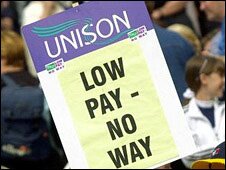If this whole business of debating the CLG white paper, ‘Communities In Control’ is starting to make you feel like you’re losing the will to live then take my sincere advice and steer clear of the Chapter (7) on ‘Standing For Office’.
The chapter kicks off by pointing out that women, ethnic minorities and under 25′s are heavily under-represented on local councils as elected members compared to broad population demographics, after which we discover that bears really do shit in the woods and that they suspect that the Pope may possibly be a Catholic.
The proposed ‘solution’ for this problem is a Black, Asian and Minority Ethnic Women Councillors Taskforce, which already exists, and all usual nonsense about training, mentoring, shadowing, networking and outreach events that gets thrown in the pot by the government devoid of genuinely innovative thinking.
Continue reading

 Liberal Conspiracy is publishing a series of discussions about the government’s Community Empowerment White Paper. Hazel Blears said blogs are not constructive enough; this is the first such project where readers have volunteered to review different parts of the paper. Consultation on this paper is due to end soon.
Liberal Conspiracy is publishing a series of discussions about the government’s Community Empowerment White Paper. Hazel Blears said blogs are not constructive enough; this is the first such project where readers have volunteered to review different parts of the paper. Consultation on this paper is due to end soon.